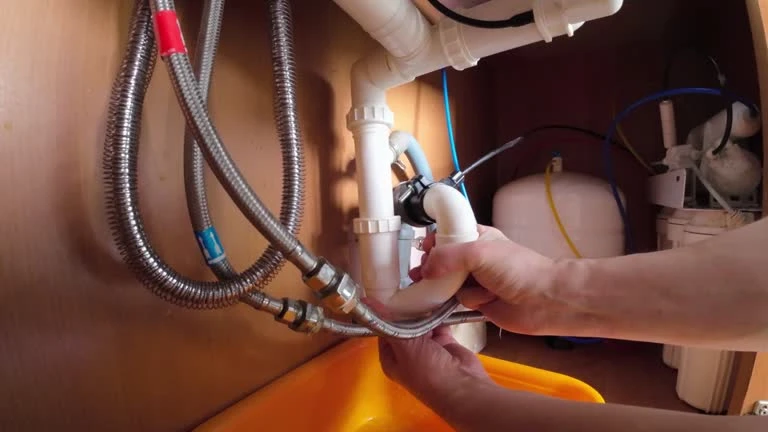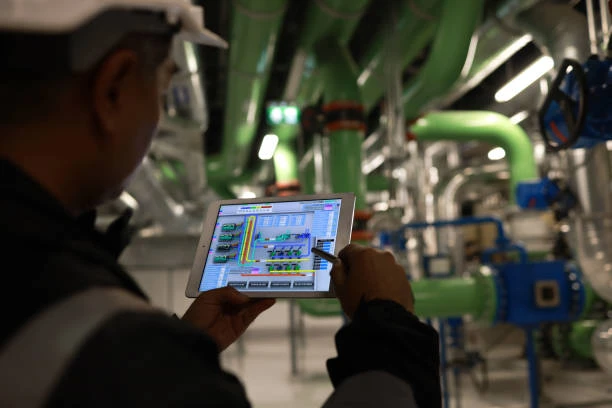Introduction to Ball Valves
Ball valves play a crucial role in the water treatment industry. They control the flow of water effectively. Their simple design allows for quick operation. This functionality is essential for maintaining water quality. Ball valves can handle high pressure and temperature. They offer reliability in various applications. For instance, in water treatment plants, they manage water flow in tanks. The water tank float ball valve is a key component in this setup. It ensures that the water level remains stable.
Functionality of Water Tank Float Ball Valves
Water tank float ball valves operate based on buoyancy. When the water level rises, the float lifts. This action closes the valve, stopping the water flow. Conversely, when the water level drops, the float descends. This opens the valve, allowing water to enter. This mechanism prevents overflow and maintains optimal water levels. In water treatment facilities, this functionality is vital. It ensures that tanks do not overflow during heavy rainfall. Additionally, it prevents wastage of treated water.
Advantages of Using Ball Valves
Ball valves offer several advantages in water treatment. First, they provide a tight seal, preventing leaks. This feature is crucial for maintaining water quality. Second, they require minimal maintenance. Their straightforward design allows for easy cleaning. Third, they provide excellent flow control. Operators can adjust the flow rate quickly. This adaptability is essential for varying water treatment processes. The water tank float ball valve exemplifies these advantages well. It ensures efficient water management without frequent interventions.
Durability and Longevity
Durability is another significant benefit of ball valves. They can withstand harsh conditions in water treatment. Materials like stainless steel and PVC enhance their lifespan. These materials resist corrosion and wear. As a result, ball valves can last for years without replacement. This longevity reduces operational costs for water treatment facilities. Investing in high-quality ball valves pays off in the long run. The water tank float ball valve is no exception. Its robust construction ensures reliable performance over time.
Applications in Water Treatment
Ball valves find various applications in the water treatment industry. They control water flow in treatment plants, storage tanks, and distribution systems. They also regulate chemical dosing in treatment processes. By ensuring precise flow rates, ball valves maintain treatment efficiency. The water tank float ball valve specifically manages water levels in storage tanks. This application is vital for ensuring a consistent supply. Proper water levels also prevent system failures during peak demand.
Environmental Impact
Using ball valves in water treatment positively impacts the environment. Proper flow control reduces water wastage. This efficiency is crucial in regions facing water scarcity. By preventing overflow, ball valves help conserve treated water. The water tank float ball valve contributes to this effort significantly. It maintains optimal water levels, ensuring sustainable usage. Furthermore, reducing leaks minimizes contamination risks. This outcome enhances overall water quality.
Regulatory Compliance
Water treatment facilities must adhere to strict regulations. Ball valves help maintain compliance with these standards. They ensure proper flow rates and prevent contamination. Regular maintenance of ball valves is essential for compliance. Facilities must inspect and replace any faulty valves. The water tank float ball valve is particularly important. Its reliable operation supports adherence to water quality standards. By using high-quality ball valves, facilities demonstrate their commitment to safety.
Conclusion
In summary, ball valves are indispensable in the water treatment industry. Their reliable functionality, durability, and efficiency make them essential. The water tank float ball valve stands out for its role in maintaining water levels. This component ensures optimal operation in water treatment facilities. By using ball valves, facilities can conserve water and meet regulatory standards. Their impact on water quality cannot be overstated. Investing in quality ball valves is crucial for sustainable water management.
IFAN Products international standards
IFAN products strictly adhere to a comprehensive range of international standards, encompassing ISO 15874, EN 15874, ASTM F2389, DIN 8077/8078, GB/T 18742, NBR 15884, ISO 15494, EN ISO 15494, GB/T 19472, NBR 15494, ASTM 2846 (501), DIN 8079/8080 (502), ASTM F441/F441M SCH80 (503), DIN (504), DIN (505), GB/T 18993, AS/NZS 1477, CSA B137.6, NSF/ANSI 14, TIS 17-2532/1131-2535, BS 3505, BS 4346 (801), ASTM D1785 SCH40 (802), ASTM D1785 SCH80 (803), DIN (804), GB (805), GB (806), GB(901), DWV(902), ASTM D2665 (903), along with ASTM D2241, D2665, D2729, and F441/F441M series, ISO 1452, EN ISO 1452, DIN 8061/8062, GB/T 10002, AS/NZS 1477, JIS K6741, CSA B137.3, and other national and industry norms.
Connect
IFAN is a Chinese manufacturer of plastic pipes, fittings and valves with 30 years of experience. If you are interest in IFAN copper fittings, copper valves, plastic pipes and fittings, please contact us. IFAN offers you a variety of standard pipes to meet your specific needs. Click below to learn more about IFAN’s wide range of affordable and cost-effective valve products and piping system related products.
We will reply your email or fax within 24 hours.
You can call us at any time if there is any question on our production.
For more information,pls visit our webside https://waterpipefitting.com/
Pls Mailto: [email protected]
Whatsapp: +86 15088288323














Recent Comments